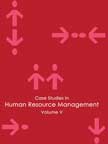Banning Flexible Work Options: Yahoo's New Controversial HR Policy
|
|
Case Details:
Case Code: HROB162
Case Length: 14 Pages
Period: 2012-2013
Organization: Yahoo!, Inc.
Pub Date: 2013
Teaching Note: Not Available
Countries: Global
Industry: Information Technology
To download Banning Flexible Work Options: Yahoo's New Controversial HR Policy
case study
(Case Code: HROB162) click on the button below, and select the case from the list of available cases:

OR
 Price:
Price:
For delivery in electronic format: Rs. 400;
For delivery through courier (within India): Rs. 400 + Rs. 25 for Shipping & Handling Charges
»
Human Resource, Organization Behavior Case Studies
» HRM Short Case Studies
» View Detailed Pricing Info
» How To Order This Case
» Business Case Studies
» Area Specific Case Studies
» Industry Wise Case Studies
» Company Wise Case Studies
Please note:
This case study was compiled from published sources, and is intended to be used as a basis for class discussion. It is not intended to illustrate either effective or ineffective handling of a management situation. Nor is it a primary information source.
Chat with us

Please leave your feedback

|
|




<< Previous
"Some of the best decisions and insights come from hallway and cafeteria discussions, meeting new people and impromptu team meetings. Speed and quality are often sacrificed when we work from home".
– Yahoo's Note Asking all its Employees to Start Working its Offices, in February 2013.
"This seems a backwards step in an age when remote working is easier and more effective than ever... If you provide the right technology to keep in touch, maintain regular communication and get the right balance between remote and office working, people will be motivated to work responsibly, quickly and with high quality".
- Richard Branson, Founder of the Virgin Group , in February 2013.
|
Internet major Yahoo!, Inc. (Yahoo) found itself losing market share in the early 2000s as competition began to increase. The continuing crisis in the company saw the exit of successive CEOs reportedly due to their non-performance. In July 2012, the Yahoo board appointed a longtime Google, Inc. (Google) executive, Marissa Mayer (Mayer), as the new CEO of the internet giant. Mayer was given the task of reviving the company’s fortunes. Soon after taking over as CEO, Mayer began implementing a slew of measures to put the company back on the growth track. She replaced a number of senior executives at Yahoo with new ones.
|

|
She also focused on changing the culture at Yahoo. She introduced a new suggestion program called Process, Bureaucracy, and Jams (PB&J) to revitalize the spirit of innovation among Yahoo's employees. Besides, she set up a new framework called the 'four Cs' to evaluate the performance of all the employees at Yahoo. Other initiatives included providing free food and free iPhones to employees at the company’s headquarters. Mayer also took some decisions like extending the maternity and paternity leave of the employees.
However, Yahoo implemented a new HR policy in February 2013 which stirred up a hornets' nest. Under the new policy, all employees were required to work from Yahoo's offices. In effect, the new policy prohibited employees from working from home. While some analysts supported the new HR policy saying that it would help in trimming the bloated infrastructure that Yahoo had built up over the years, it attracted criticism from other analysts and executives in other companies. Many analysts said that the new policy was regressive and went against the flexible work practices pioneered and followed by technology companies. Some analysts opined that the new HR policy would prevent Yahoo from attracting talented employees at a time when it was looking to hire more such people. "Employees today are demanding better work-life balance, and employers will need to offer such options if they want to attract and retain the best workers," said Greg Kratz, independent business columnist for Deseret News. But Yahoo defended its policy saying that its new HR policy need not be seen as a general industry trend but just as a new arrangement to suit the needs of the company. ..
Background Note
- Next Pages >>
|
|








